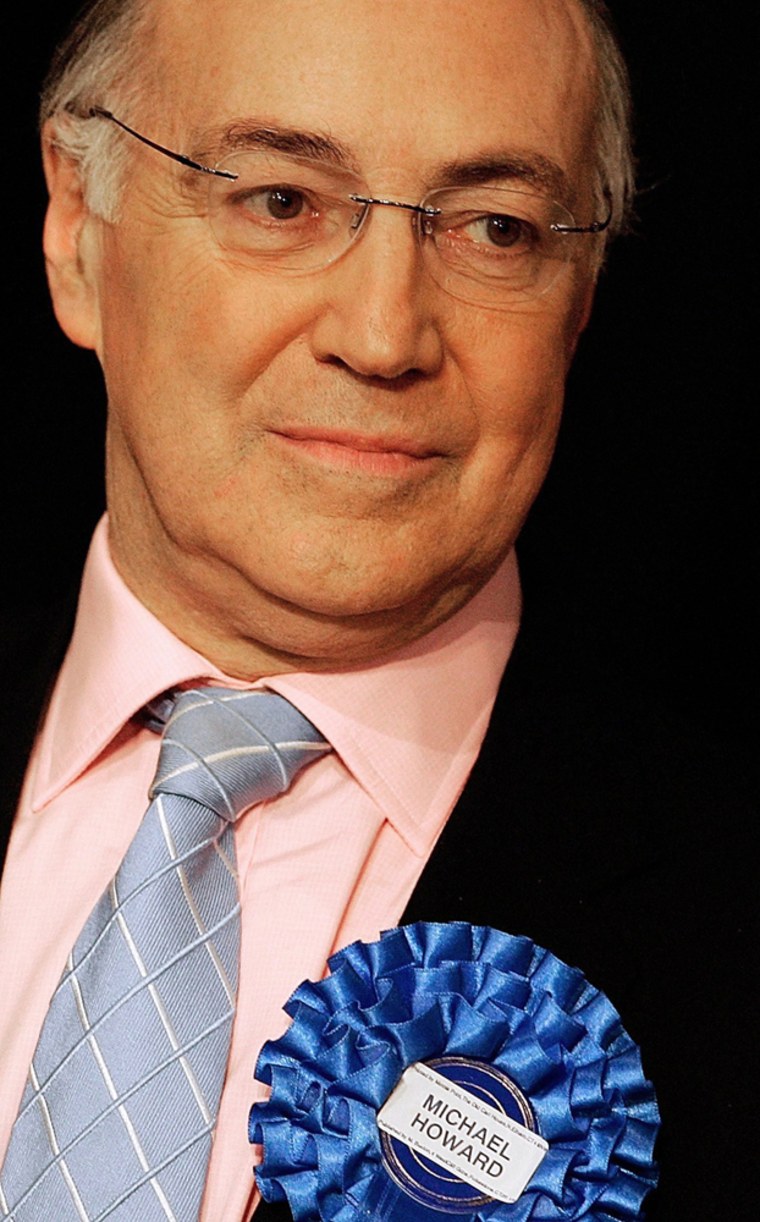Britain’s Conservative Party leader said Friday he plans to step down after the party suffered its third consecutive defeat at the hands of Prime Minister Tony Blair.
The announcement by Michael Howard made Thursday’s vote the third straight election that prompted the party’s leader to resign.
“I’ve said that if people don’t deliver, they go. And for me, delivering meant winning the election,” Howard told supporters.
Under Howard, the Tories added more than 30 seats to their total of 160 in the last Parliament, their first significant increase since 1997.
Howard said he would stay on until the party decided whether it wanted to change the rules for choosing his successor, but he planned to go “sooner rather than later.”
“I want to avoid the uncertainty of prolonged debate about the leadership of the party,” he told party loyalists in one of the Tories’ newly gained seats in south London. “I want the next Conservative leader to have much more time than I had to prepare our party for government.”
‘Simply too old’
Howard, 63, a former Cabinet minister in John Major’s government, became party leader in 2003. He said he would be at least 67 by the time of the next national election, and “that’s simply too old to lead a party into a government.”
Howard did not recommend a new set of rules, but Conservative lawmakers have been unhappy with a system in which grass-roots party members have the final say.
Conservative lawmakers first vote on their choice of leader, and the top two candidates then go to a runoff by party members.
That system led to the election of Iain Duncan Smith after William Hague resigned following the 2001 election. Duncan Smith, the self-styled “quiet man,” struggled to stamp his authority on the party, and resigned in 2003 after losing a no-confidence vote by his legislative colleagues.
Blair’s Labour Party won a third term in Thursday’s election after wins in 1997 and 2001, matching Margaret Thatcher’s three straight in 1979, 1983 and 1987.
Since Thatcher was ousted by her party in 1990, Conservatives have been unable to reassert the dominance they enjoyed through much of the 20th century.
Thatcher’s successor, Major, barely won the 1992 election, then struggled for five years with a small and fractious majority.
